Contents
Introduction
Karen Horney was a pioneering German psychoanalyst whose work challenged and expanded the ideas of Sigmund Freud, particularly in the areas of neurosis, personality development, and feminine psychology. She is best known for her theories on neurotic needs, basic anxiety, and the concept of the real self. Horney is also recognized for her critique of Freud’s theories on women, introducing a feminist perspective into psychoanalysis that emphasized social and cultural factors in personality development. Her groundbreaking work helped reshape the field of psychodynamic therapy and opened up new possibilities for understanding the human psyche beyond traditional Freudian models.
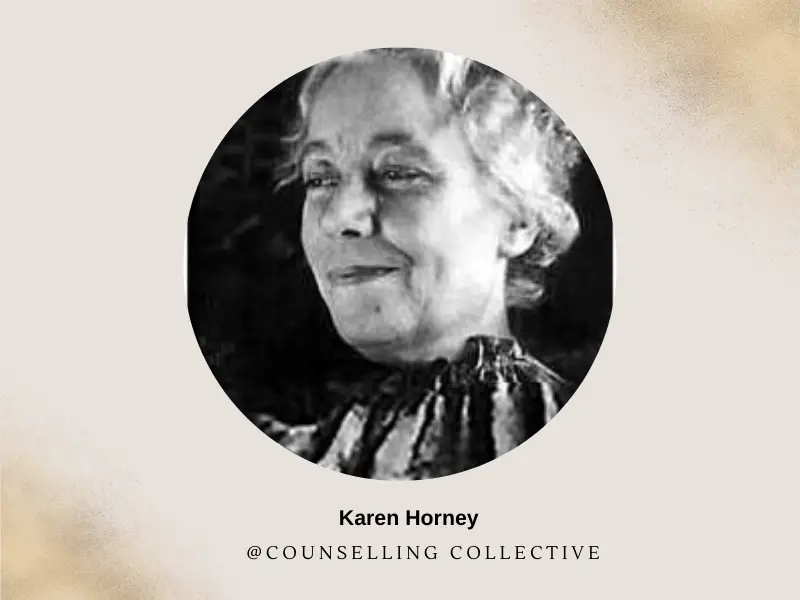
This article explores Horney’s life, her significant contributions to psychoanalysis and psychology, and the lasting impact of her work on modern psychotherapy and feminist theory.
Early Life and Education
Karen Horney was born Karen Danielsen on September 16, 1885, in Blankenese, Germany. Growing up in a conservative household, she faced the dual influences of a strict, religious father and a nurturing mother who encouraged her intellectual curiosity and independence. This complex family dynamic shaped her understanding of human behavior, particularly the development of neuroses and the significance of interpersonal relationships. Horney’s early experiences fostered her commitment to exploring the psychological impacts of societal and familial pressures. Her work ultimately challenged prevailing Freudian theories, emphasizing the importance of culture and gender in psychological development. Horney’s insights laid the foundation for her influential contributions to psychoanalysis and feminist psychology.
Image Source: totallyhistory
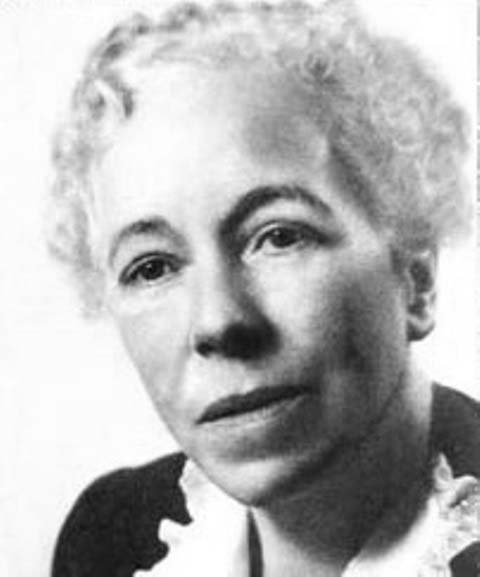
Educational Journey
| Aspect | Details |
|---|---|
| Undergraduate Education | Horney studied medicine at Freiburg University before transferring to Berlin University, where she earned her medical degree in 1913, focusing on psychiatry. |
| Psychoanalytic Training | She trained in psychoanalysis at the Berlin Psychoanalytic Institute, where she initially followed Freudian principles but later diverged to develop her own theories. |
| Influence of Freudian Thought | Horney was influenced by Freud’s early work but began to question his theories, particularly his views on female psychology and personality development. |
| Clinical Work | Horney practiced psychiatry and psychoanalysis in Berlin and later in the United States, where her experiences with patients influenced the development of her unique approach to psychotherapy. |
Influences and Early Career
| Aspect | Details |
|---|---|
| Sigmund Freud | Horney’s early career was shaped by Freudian psychoanalysis, but she later broke away from Freud’s theories, especially his views on sexuality and female psychology. |
| Alfred Adler | Alfred Adler’s emphasis on the role of social factors and individual striving in personality development influenced Horney’s own critique of Freudian theory. |
| Feminism | Horney’s feminist ideas were rooted in her critique of Freud’s penis envy theory. She argued that social and cultural factors, not biology, were key to understanding women’s psychology. |
| Interpersonal Psychology | Horney’s focus on interpersonal relationships and their role in the development of neuroses was influenced by her clinical work and her observations of patient dynamics. |
| Cultural Context | Horney’s views on cultural differences in psychological development led her to argue that personality was shaped by the environment, not just unconscious drives. |
Major Theories and Work
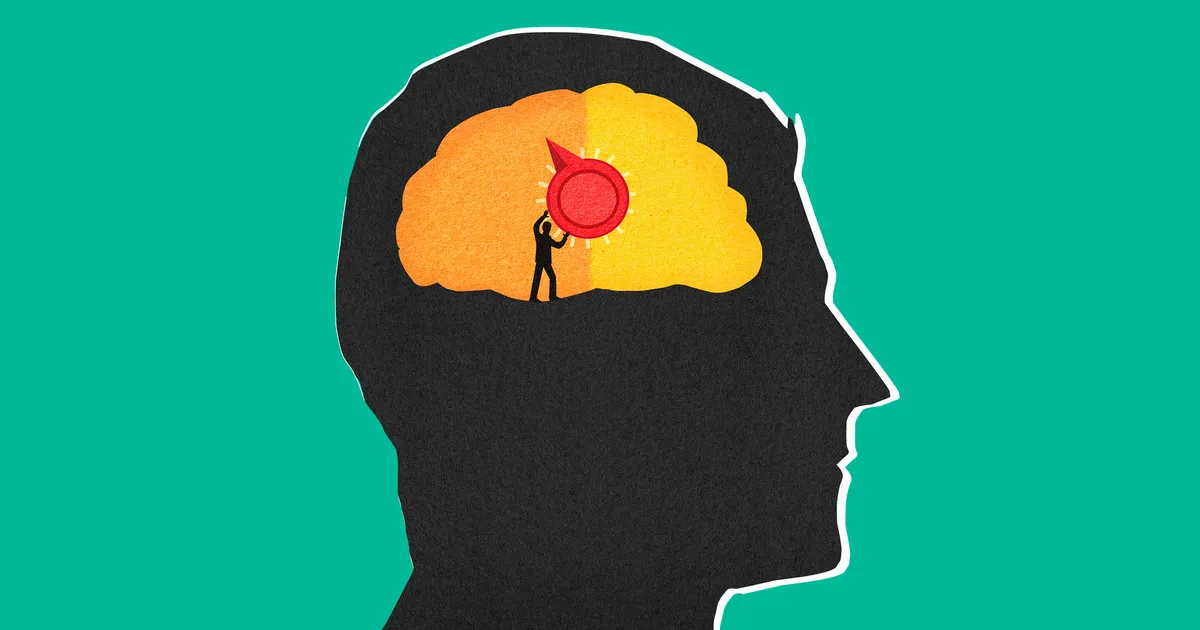
Neurotic Needs and Basic Anxiety
One of Horney’s most significant contributions to psychology is her theory of neurotic needs and basic anxiety, which she developed as an alternative to Freud’s psychosexual theory.
- Basic Anxiety: Horney believed that children who feel unloved or neglected develop basic anxiety, which is a deep-seated feeling of being isolated and helpless in a hostile world. This anxiety can become the foundation for neuroses in adulthood.
- Neurotic Needs: To cope with basic anxiety, individuals develop neurotic needs or compulsive strategies for seeking emotional security. Horney identified ten neurotic needs, grouped into three broad categories:
- Moving Toward People: This strategy involves seeking approval, affection, and a sense of belonging through compliance and dependence on others.
- Moving Against People: In this strategy, individuals become aggressive or domineering to gain power and control over others.
- Moving Away from People: This coping mechanism involves withdrawal and detachment, as individuals seek to avoid emotional conflict or rejection by isolating themselves.
Image Source: thecut.com
Horney introduced the concept of the real self and the idealized self as a way to explain how neurosis develops when individuals become alienated from their authentic selves.
- Real Self: According to Horney, the real self represents an individual’s genuine feelings, desires, and potential. When a person’s real self is nurtured, they can grow and develop healthily.
- Idealized Self: In contrast, the idealized self is a distorted version of the self that is created in response to basic anxiety and neurotic needs. Individuals develop an idealized image of themselves, striving to live up to unrealistic standards, which leads to inner conflict and frustration.
- Neurosis and Alienation: Horney argued that neurosis arises when individuals become disconnected from their real selves and instead focus on achieving their idealized self-image.
Image Source: priceweber.com
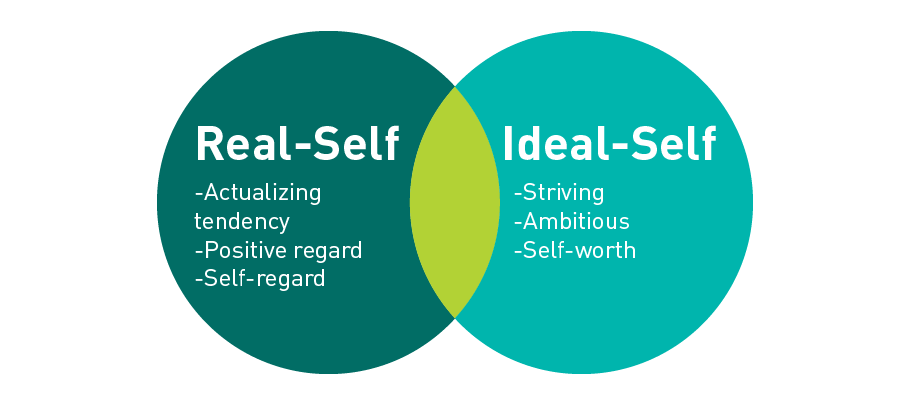
The Real Self vs. Idealized Self

Feminine Psychology
Karen Horney is also recognized as a pioneer in feminine psychology, challenging Freud’s concept of penis envy and offering a feminist critique of psychoanalytic theory.
- Critique of Penis Envy: Horney rejected Freud’s idea that women suffer from penis envy and instead argued that any feelings of inferiority in women are socially and culturally constructed, not biologically determined.
- Womb Envy: In response to Freud’s concept of penis envy, Horney introduced the idea of womb envy, suggesting that men may experience feelings of inadequacy or envy toward women’s ability to bear children.
- Women’s Psychological Development: Horney emphasized that women’s psychological development is deeply influenced by their roles in society and the pressures they face in conforming to traditional gender norms.
Image Source: psychologs.com
Famous Books and Publications
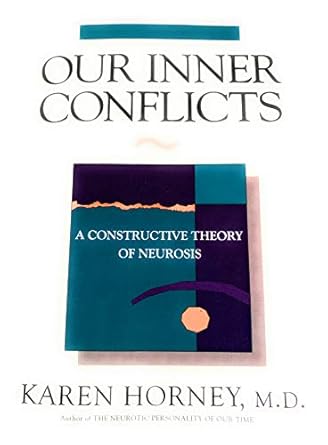
Our Inner Conflicts 1945

New Ways in Psychoanalysis 1939
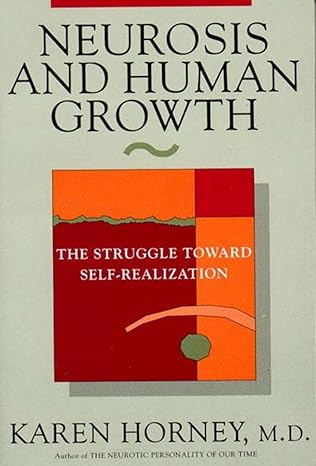
Neurosis and Human Growth 1950
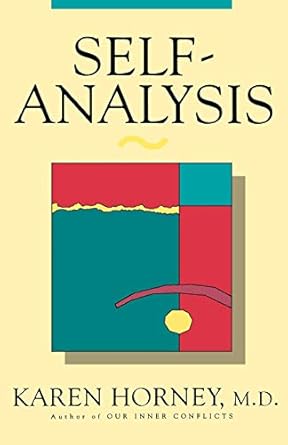
Self-Analysis 1942
Influence on Contemporary and Future Psychological Research
- Neurotic Behavior and Personality Development: Horney’s work on neurotic needs and basic anxiety continues to influence research on personality disorders and the development of neuroses. Her focus on how early interpersonal relationships shape adult neuroses has led to further exploration of the role of attachment and emotional security in mental health.
- Feminist Psychology: Horney’s critique of Freud’s theories on women has had a lasting impact on the development of feminist psychology. Her work opened the door for psychologists to explore how gender roles, social expectations, and cultural norms shape women’s psychological experiences and contribute to their mental health challenges.
- Self-Concept and Personal Growth: Horney’s concepts of the real self and idealized self have inspired research on self-actualization and personal growth. Her ideas about the importance of becoming one’s authentic self have been integrated into modern approaches to humanistic psychology and self-development.
- Interpersonal Relationships and Mental Health: Horney’s focus on how interpersonal relationships contribute to anxiety and neurosis has influenced modern approaches to psychotherapy. Her work helped pave the way for interpersonal therapy (IPT), which focuses on improving relationship dynamics as a means of treating mental health conditions such as depression and anxiety.
Psychologists and Educators Influenced by Karen Horney
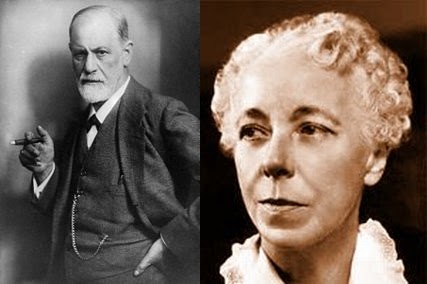
- Carl Rogers: Carl Rogers, a leading figure in humanistic psychology, was influenced by Horney’s focus on the real self and the importance of achieving self-acceptance and authenticity. Rogers’ client-centered therapy emphasizes the importance of helping individuals reconnect with their real selves, a concept central to Horney’s work.
- Erich Fromm: A close colleague of Horney, Erich Fromm was influenced by her ideas on basic anxiety and the alienation of the self. Fromm’s work on social and cultural factors in personality development builds on Horney’s emphasis on the role of society in shaping human behavior.
- Feminist Psychologists: Horney’s feminist critique of Freud inspired future generations of feminist psychologists, including Carol Gilligan and Nancy Chodorow, to explore how gender roles and cultural expectations affect women’s psychological development.
- Heinz Kohut: Known for his work on self-psychology, Heinz Kohut was influenced by Horney’s exploration of the real self and its role in psychological health. Kohut’s theories on the development of the self are seen as an extension of Horney’s ideas about personal growth and self-actualization.
- John Bowlby: The founder of attachment theory, John Bowlby was influenced by Horney’s ideas on early relationships and their impact on emotional security. Bowlby’s work on how early bonds shape psychological development echoes Horney’s emphasis on the importance of healthy relationships in childhood.
Impact on Psychology
- Influence on Modern Thought: Karen Horney’s theories on neurosis, anxiety, and the self have had a profound impact on modern psychology. Her work challenged Freud’s male-centric views and introduced a more nuanced understanding of gender dynamics, social influences, and cultural factors in personality development. Horney’s emphasis on the real self and the need for self-acceptance has influenced contemporary approaches to humanistic psychology, feminist therapy, and personality development. Her ideas remain central to how we understand the development of neuroses, the role of interpersonal relationships in mental health, and the impact of cultural expectations on women’s psychology.
- Legacy and Recognition: Horney’s contributions to psychoanalysis and feminist psychology have earned her recognition as one of the most important figures in the history of psychology. She was a trailblazer in developing a feminist critique of Freudian theory, and her theories on neurosis and personality development continue to influence modern psychotherapy. Horney’s work is widely cited in academic research and clinical practice, and her legacy as a thought leader in psychology continues to shape how we understand the human psyche and the role of culture in mental health.
Conclusion
Karen Horney’s pioneering work on neurosis, feminine psychology, and the self has had a lasting impact on the field of psychology. By challenging Freud’s male-dominated theories and introducing new concepts about the role of culture, relationships, and gender in psychological development, Horney reshaped the way we understand personality and mental health. Her theories on basic anxiety, neurotic needs, and the real self remain influential in contemporary psychotherapy and feminist psychology, ensuring that her legacy continues to inspire future generations of psychologists and therapists.
Bibliography
- Horney, K. (1937). The Neurotic Personality of Our Time. W. W. Norton & Company.
- Horney, K. (1945). Our Inner Conflicts: A Constructive Theory of Neurosis. W. W. Norton & Company.
- Horney, K. (1950). Neurosis and Human Growth: The Struggle Toward Self-Realization. W. W. Norton & Company.
- Paris, B. J. (1994). Karen Horney: A Psychoanalyst’s Search for Self-Understanding. Yale University Press.
- Rubins, J. L. (1978). Karen Horney: Gentle Rebel of Psychoanalysis. Dial Press.
- Horney, K. (1967). Feminine Psychology. W. W. Norton & Company.
- Quinn, S. (1987). A Mind of Her Own: The Life of Karen Horney. Summit Books.
- Westkott, M. (1986). The Feminist Legacy of Karen Horney. Yale University Press.
- Mitchell, S. A. (1988). Relational Concepts in Psychoanalysis: An Integration. Harvard University Press.
- Paris, B. J. (1994). Personality and Personal Growth: Horney’s Contribution to Humanistic Psychology. Yale University Press.






